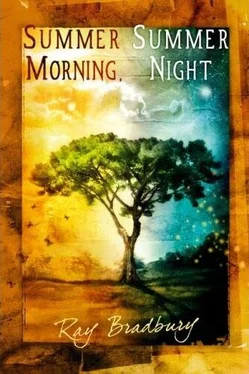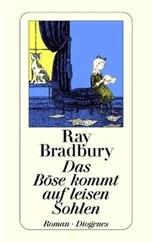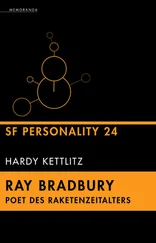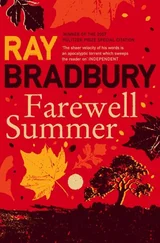“COME ON, Jack, why not?”
“George, it’s crazy.”
“We don’t have to tell anybody. For my own satisfaction.”
“George, let go of it. For cry-yi. Whinnikers, George.”
“It’ll be a clear night, cool and warm both.”
“That’s dirty and nasty, it’s not clean.”
“Where’s your spunk?”
“It ain’t in digging up nice people, darn it!”
“Old people always braggin’, they should stop that.”
“Sometimes it’s all they got, give ’em that, George. Take it easy. Why you want to take things away from them? They already got so much taken away, why take the last bit, can you tell me?”
THERE WAS nothing inside the great box.
Or, at first, there seemed to be nothing. And then the wind blew just a little bit and stirred a few things there. And George Gray stood looking down upon these few things and counted them and named them over to himself and remembered them for many years after, and the meanness went out of himself, he felt the meanness go from his eyes and from around his mouth and from the muscles in his jaws and his lips, and the meanness drain from the hard muscles under his ribs and in the tendons of his back as he bent there. He let all the meanness melt away as if he were standing in the rain in a suit made of tissue papers and the first wash made him naked.
For inside of the box were the following things:
A single delicate green fern, as soft as breathing. A sprig of fresh summer mint. One new August peach, with the bloom still warm in it. One single violet, purple and alive. A red rose. And one blade of green summer grass.
That was all.
These things were placed, the green fern so, the peach this way, the red rose that, the summer grass another way, to suggest a form and a shape and a being. And standing there, George Gray found time to enact in his imagination the entire elaborate afternoon just over, Mr. Pearce, and a half dozen other old men, and the keeper of this vast and quiet land inside the fence and the iron gate, taking turns in the sun, digging, planning, arranging, and burying again, and going off in the sun, spades on shoulders, smiling. Why? To make a convert of a disbeliever, to bring him into their clan, the last one in the town, the skeptic, the cynic. To stop his mouth, to stop his doubt, to put an end forever to his threat. He glanced at the chimney of the oven-house on the far side of this marbled field; the faintest trace of smoke still went up to the sky.
He took one last look at the flowers and the delicate green fern and the blade of grass. Then he closed the lid gently and began filling the earth in over it, working steadily and quietly.
It was midnight when he reached his street, walking. It was five after midnight when, in passing the old man’s place, he heard his own name called. He went up to the porch.
“Hello, George,” said the old man.
“Hello,” said George, uncertainly.
“George,” said the old man, after a pause. “Are you still feeling mean and cantankerous?”
“I feel just fine,” said George.
“You changed your mind any since last time I seen you?” asked the old man. “What do you think now?”
George said, “She’s beautiful. She’s the most beautiful lady I’ve ever seen, so help me.”
“That’s what I like to hear, George,” said the old man. “That’s what I like to hear. Tell you what; you just trot on over tomorrow night for a little game of chess, eh?”
“Yes, sir.”
“I’ll beat the pants off you, son.”
“Yes, sir.”
“Well, good night, George.”
“Good night, sir.”
George went down the steps and away from the house and left the old man sitting there in the dark. He did not look back, but waved his hand quietly when he heard the old man call good night again, and as George opened the screen door at this own house, a moth flew up suddenly, with a very soft touch indeed, and brushed his face, and was gone so quickly that it almost seemed it had never been there.
ALONE THEY LIVED in their house, the two old sisters, as quiet as spiders, as large as sofas, both of them, stuffed with time and dust and snow. Walking by their house at night you saw their faces, like porcelain plates in the unlit windows, or you saw their hands put up to draw the green shade. And you heard no noise inside, save the dry crackling of newspapers. Miss Nancy Jillet and her sister Julia took their air at four in the morning when the town was undercover, and the only one who ever saw them was the policeman walking by swinging his nightstick threateningly at his shadow which ran away ahead of him down the lanterned street as he marched away from the raw lonely light.
So it was not impossible, then, that on an evening in summer, unable to sleep, with lines in her forehead and perspiration in a dew upon her upper lip, Alice Ferguson, out for a walk around the block, and not afraid for the moon was out and the town serene and beautiful, and she was aged eighteen and nothing could happen to her, happened upon the Jillets, the two old ladies, sitting in the milky dark of 2 a.m., with needley, silver stars for eyes and fat porcelain hands across their pincushion breasts rocking slowly in their asthmatic rocking chairs, alone, alone.
At first, Alice Ferguson was quite startled, and then, remembering the tales of their solitary confinement within life, lifted her hand and called, “Good evening,” across the lawn to the silvered porch.
After a time, one of the chairs stopped rocking and one of the sisters said, “Good morning.”
Alice Ferguson laughed. “Of course, it is morning. Good morning, then.”
The sisters nodded silently.
“It’s a lovely night,” said Alice Ferguson.
“You’re Alice Ferguson,” said one of the old women.
“Yes, how did you know?”
“And you’re 18 years old.”
“Yes,” she replied, uncertainly.
“Come here, child,” said Nancy Jillet, the oldest and fattest of the two, in shadow.
She crossed the soft moon lawn to the edge of the railinged porch and peered in at the two half-seen faces.
“And you’re in love,” said Nancy Jillet, in an awful whisper.
“How did you know?”
The sisters rocked and looked at each other wisely.
“How did you know?” demanded Alice Ferguson.
“And he doesn’t love you,” said Nancy Jillet.
“Oh,” said Alice.
“And you’re unhappy and out walking late tonight,” said the other sister in an old voice.
Alice stood before them, her head sinking, her eyelids flickering.
“Never you mind, child, never you mind,” whispered Nancy Jillet, uncrossing her arms from her amazing breast. “You came to the right place.”
“I didn’t come...”
“Sh, we’ll help you.”
Alice found herself whispering, also, they were a trio of black velvet and white ermine conspirators, half moon, half shadow, there at the center of the night.
“How?” she whispered.
“We’ll give you a love potion.”
“Oh, but...”
“A love potion, child, to take with you.”
“I can’t afford...”
“No money, child.”
“I don’t believe...”
“You will, child, you’ll believe, when it works.”
“I don’t want to...”
“Bother us? No bother. It’s right inside, isn’t it?”
“Yes. Yes.”
“I must be going.”
“Stay just a moment.” The sisters had stopped rocking altogether and were putting their hands out, like hypnotists or tight rope walkers, at her.
“It’s late.”
“You want to win him, don’t you?”
“Yes.”
“All right then. Directions on the bottle. Get it, sister.” And a moment later, in and out of the house like a huge dream, the sister had gone and fetched the green bottle and it rested, glittering, on the porch railing. Alice reached up her hand in the moonlight. “I don’t know.”
Читать дальше
Конец ознакомительного отрывка
Купить книгу










